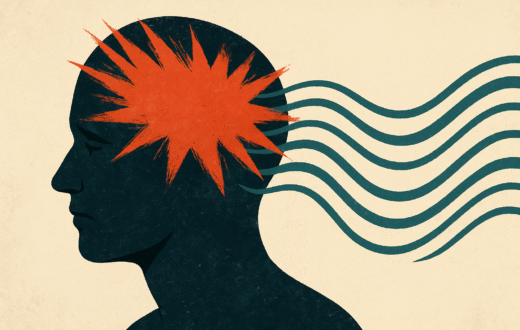Alexithymia: difficulty expressing and understanding emotions

Introduction Alexithymia is a psychological condition characterized by difficulty expressing and understanding an individual’s feelings in words. The condition was first defined in the seventies, when researchers found that some individuals face clear challenges in describing and interpreting their feelings. Alexithymia appears as an important topic in clinical psychology, as it is associated with problems in mental health and social relationships, and is considered an influential factor in how an individual reacts to life stress and manages his feelings.
Definition of alexithymia and its causes Alexithymia is defined as the difficulty of perceiving and understanding emotions, as affected individuals face challenges in converting their feelings into expressive words. Studies suggest that some imbalances in areas of the brain associated with emotion processing, such as the frontal cortex and limbic system, may be the cause of this condition. In addition, environmental factors such as exposure to harsh life experiences or parenting in unsupportive emotional environments may lead to the development of alexithymia in some individuals.
Symptoms of alexithymia The symptoms of alexithymia include several aspects, as affected individuals show behaviors and manifestations that express difficulty understanding and expressing feelings, and among the main symptoms are:
- Impaired emotion perception: People with alexithymia have difficulty recognizing their underlying emotions, such as happiness, sadness or anger.
- Difficulty describing emotions: Even when they are able to perceive their feelings, sufferers find it difficult to express them in words.
- Orientation towards abstract thought: People with alexithymia tend to focus on practical and abstract ideas rather than on emotional thoughts.
- Loss of ability to react emotionally: Some individuals experience a lack of interaction with emotional events, which can lead to distance from others and difficulty forming close emotional relationships.
The effect of alexithymia on daily life Alexithymia greatly affects the daily lives of affected individuals, as they face difficulties in forming healthy social relationships due to their inability to communicate emotionally effectively. Moreover, this disorder can lead to mental health problems such as anxiety and depression, where sufferers are unable to express their negative feelings healthily. On a professional level, individuals with alexithymia may face challenges working in teams that require emotional interaction or empathy with others.
Alexithymia and Clinical Psychology Within the framework of clinical psychology, the diagnosis of alexithymia is an important step towards providing appropriate support to affected individuals. The Toronto Alexithymia Scale (TAS-20) is used as a tool to measure alexithymia levels, providing a measure based on a subjective questionnaire that assesses the ability to identify and describe emotions and preoccupation with external thoughts.
Treatments and psychological interventions Although alexithymia is not a fully treatable disorder, there are strategies and techniques that can help individuals cope with their difficulties. Some interventions include:
- Cognitive Behavioral Therapy (CBT): Cognitive behavioral therapy helps individuals develop new skills to express and interact with emotions, as they learn how to gradually perceive their emotions.
- Psychosomatic therapy: This type of therapy focuses on the connection between body and emotion, which helps sufferers explore their feelings and learn how to express them.
- Group therapy: Group therapy gives individuals the opportunity to interact with others in a supportive environment, enhancing their understanding of emotions and improving their ability to express them.
- Self-awareness training: includes meditation and self-awareness techniques that help individuals develop their relationship with their feelings and realize their effects on their lives.
Conclusion Alexithymia is a psychological and social challenge for members of society, and is considered a condition that requires specialized psychological interventions to support individuals in improving their emotional skills. As research advances, therapeutic interventions are expected to become more effective, improving the quality of life of affected individuals and helping them communicate effectively with others.





